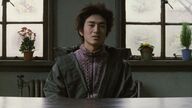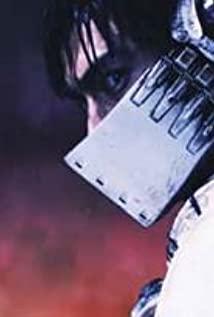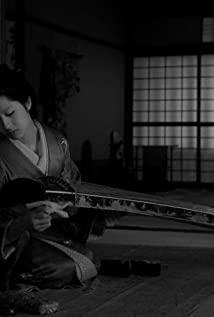——Ye Hiro and "Next Stop, Heaven"
1 This movie is about life, memory, love, family affection, and warmth in the world. This is a transit point to heaven. Everyone will pass through here to go to heaven, and hell does not exist. Those who arrive behind will choose one and only one of their most cherished memories, make images with the help of the staff, and then accompany the dead to the other side of life. And all other memories will be disillusioned and dusty.
An old building is where they work. This is an extremely normal week at the transit station. The old man in charge came in to announce the situation last week and set up new tasks. 22 people will be hosted in the new week. Mochizuki was allocated seven this time, and Shiori was Mochizuki's assistant. Among those people are elderly, middle-aged, and a young man in his early 20s. Their common task is to cooperate with the staff to choose the memory they most want to keep before Wednesday. In this way, various expressions appeared in the lens. Because they are all subjective shots of the staff. When you look at it, you seem to be listening to them telling you their stories. The warmest scene allows you to imagine yourself, vivid and fresh, vivid and vivid.
The work is as usual as usual. Some have smooth choices, some have no choice, and some don't want to choose. Until the end, there were only two left, one is Watanabe, an old man who has worked in a company all his life. The other is the problematic youth Iseya.
When Mochizuki passes through the middle of the corridor, he will look towards the roof, and there will always be a moon on the skylight. Shiori behind him also ran over and followed. In fact, Mochizuki was born in 1923 and died in the Philippines during World War II. So it has always been so young.
Mochizuki and Shiori help Old Man Watanabe remember. Show him all the records of his life-71 video tapes. In the end, with the help of images, the old man discovered the value of marriage. Although plain, his wife is loyal and virtuous. After Watanabe made his choice, he left a letter to Mochizuki. This letter let Mochizuki know that even after his fiancée got married, he did not forget him and went to his grave every year. Mochizuki retrieved his lost memories for more than 50 years.
On Saturday, there was heavy snow in the sky. Shiori accompanied Mochizuki to the data room to find the memory fragments left by his fiancée before going to heaven: it was in 1943, the same central park, the same bench, and on the bench was Mochizuki. Mochizuki remembered that before he joined the war and left, he had an appointment with the girl there, but they didn't say a word at the time.
Mochizuki reviews his past in the house. Thick snow has accumulated outside. Shiori ran to the top of the building alone and angrily stepped on the snow. The shaking lens, the broken sunlight was a little trance in the snow. Like all the people who work here temporarily, Shiori is a dead soul who has no choice to remember. And this time, she will lose Mochizuki, whom she can finally rely on with her eyes. At this time, I felt that the director constantly traced the faint and even subtle emotions between Mochizuki and Shiori with details—he looked at her eyes and she looked at him; he looked up at the moon and she looked up. The moon he saw; the smell of snow she smelled and the smell of snow he smelled... the
last night. Shiori came to Mochizuki's room. In the darkness, when Mochizuki said that he suddenly realized that he could be the happiness of others, he felt very satisfied. So he finally chose his own memory more than 50 years later and chose the road to heaven. In the screening room the next day, together with Shiori, we saw Mochizuki’s memories of choosing — sitting alone on a bench in the park, staring at the camera. Behind the camera are several friends who have worked for many years, including Shiori. Therefore, no one knows what memory he chose. It suddenly occurred to him that in the last night, the last words he and Shiori said: I will never forget you. Long black screen. When the light was on, the seat next to Shiwei was empty. A very long shot, but in the end no one turned his head to look at it.
Mochizuki is gone. Shiori would still look up when passing the promenade to look at the moon on the skylight. On Monday, Iseya, the problematic young man who did not want to choose to remember, took over his post. In the new week, Shiori also put on formal clothes and listened to the stories of passing guests independently.
If, where is the current you, which section do you want to choose to accompany you to heaven?
http://www.mtime.com/my/fall1114/blog/188861/
View more about After Life reviews










